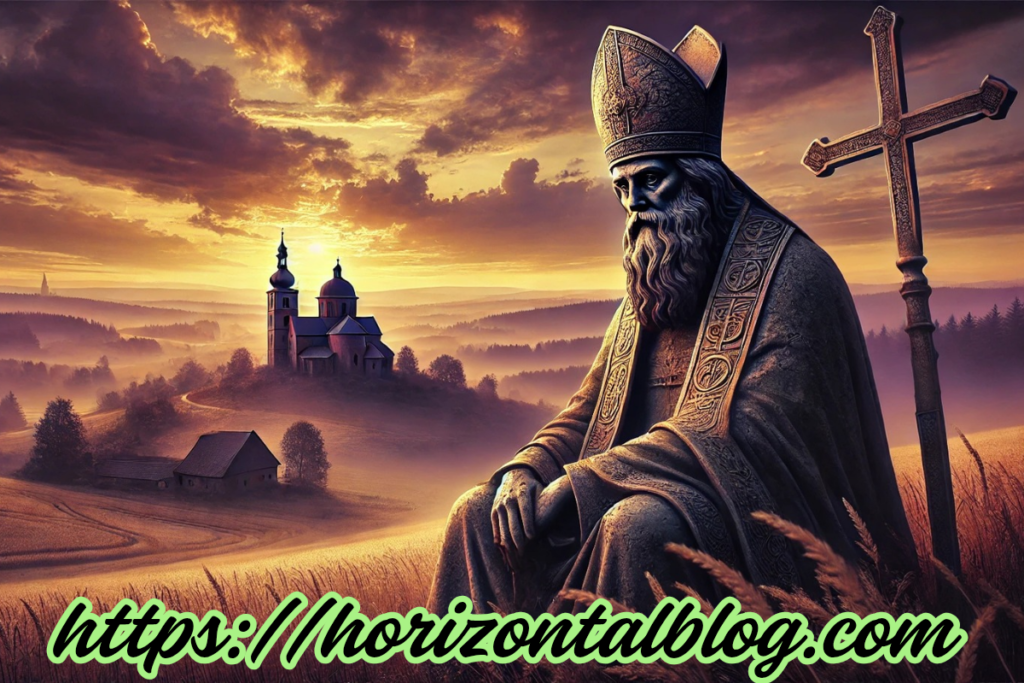Overview
The Wierszalin III Patriarkh lyric is a powerful and thought-provoking piece of music that has captivated audiences for its deep meaning and intricate poetry. Known for its emotional impact, this song is part of the Wierszalin artistic group and has sparked much debate among listeners and critics alike. In this article, we will explore the lyrics of “Wierszalin III Patriarkh,” its context, meaning, and cultural significance, providing valuable insights for those interested in Polish music, history, and art.
We will also break down key elements of the lyrics to help readers better understand the themes and emotions conveyed through the song. Whether you are a long-time fan or new to the song, this article will serve as a guide to appreciating its depth and artistic value.
What Is Wierszalin III Patriarkh?
A Brief Overview of Wierszalin Group
Wierszalin is a renowned Polish artistic group known for its experimental theater productions, creative music compositions, and avant-garde performances. The group has often been associated with bold, expressive themes, including spirituality, philosophy, and human nature. Their works explore deep cultural and historical issues through poetic language, symbolic imagery, and evocative soundscapes.
The song “III Patriarkh” (translated as “The Third Patriarch”) is one of the group’s most significant works. Its lyrics delve into complex themes such as power, faith, and human experience. The song draws from both religious and cultural references, intertwining them with personal emotions and social commentary.
Analyzing the Lyrics of “Wierszalin III Patriarkh”
Lyrics Breakdown
The lyrics of “III Patriarkh” are known for their deep emotional resonance and philosophical depth. To understand the song fully, we must first break down the text.
Opening Verse: The song begins with a reflection on the concept of faith and power. It speaks to the relationship between individuals and authority, particularly religious or political power.
Middle Section: The central part of the lyrics shifts towards introspection. The protagonist questions their own beliefs, seeking understanding in a world that seems contradictory and uncertain.
Closing Verse: In the final verses, the lyrics take on a more somber tone. The listener is left with a sense of unresolved tension, reflecting the ambiguity of life itself.
Each verse of the song is carefully crafted to provoke thought and encourage deeper reflection about personal beliefs and societal norms.
Themes and Interpretation
The Role of Patriarchs in the Song
In “III Patriarkh,” the reference to the “Patriarch” is both literal and symbolic. A patriarch is traditionally seen as a powerful figure, often in religious or familial contexts. In the song, the term is used to explore the tension between power and humility. The third patriarch represents a shift in the listener’s understanding of authority—moving away from traditional patriarchal systems towards a more modern and uncertain vision of leadership.
Faith, Power, and Human Struggle
A recurring theme throughout the song is the struggle between faith and power. The protagonist’s internal conflict is evident as they grapple with their beliefs in a world full of contradictions. This theme resonates with many listeners, as it reflects the complexities of human life in the modern world, where individuals often question the authority they once accepted unquestioningly.
Why Is “Wierszalin III Patriarkh Lyric” Important?
Cultural Significance
The “III Patriarkh” lyric is not just a song—it’s an exploration of Polish cultural history and identity. The song speaks to the ongoing challenges faced by society, especially in the context of post-communist Poland. Through its poetic structure, it calls attention to the shifting power dynamics in both religious and political spheres.
A Reflection of Polish Music Tradition
Polish music has a long and rich history of addressing social, political, and religious themes. “Wierszalin III Patriarkh” fits into this tradition, offering a modern interpretation of these issues while maintaining a deep respect for Poland’s cultural heritage.
How to Appreciate “Wierszalin III Patriarkh Lyric”
1. Listen to the Music with an Open Mind
To truly appreciate the depth of the lyrics, it’s important to listen to the song multiple times. Each listen will uncover new meanings and nuances that may have been missed during the first pass. Pay attention to the mood and tone of the music as it complements the lyrics.
2. Consider the Historical Context
Understanding the historical backdrop of Poland, especially its religious and political history, can provide deeper insights into the song’s meaning. The struggles that the Polish people faced, particularly during the communist era, are embedded in the lyrics of this song.
3. Explore Interpretations by Others
Join online forums, read articles, and listen to podcasts where others discuss their interpretations of the song. Engaging with others can provide new perspectives and help you deepen your understanding of the lyrics.
Conclusion
The Wierszalin III Patriarkh lyric is a profound and multi-layered song that touches on universal themes of power, faith, and human conflict. Through its reflective and poetic lyrics, it invites listeners to engage in a deep exploration of these themes. By understanding the cultural and historical context of the song, as well as the symbolism within the lyrics, we can gain a greater appreciation for this remarkable piece of music. Whether you are a fan of Wierszalin or simply someone interested in Polish music and culture, this song offers valuable insights into the human experience.
FAQs About “Wierszalin III Patriarkh Lyric”
Q1.What does “III Patriarkh” mean?
“III Patriarkh” translates to “The Third Patriarch.” The song explores the theme of leadership and authority, symbolized by the figure of the patriarch.
Q2.Who is the artist behind “Wierszalin III Patriarkh”?
The song is performed by the Wierszalin artistic group, a collective known for its avant-garde approach to music and theater.
Q3.What is the meaning of the lyrics in “Wierszalin III Patriarkh”?
The lyrics address themes of faith, power, and human struggle, reflecting on the tension between authority and personal belief.
Q4.Is “Wierszalin III Patriarkh” a popular song in Poland?
Yes, the song has gained a significant following in Poland, particularly among those interested in Polish music and the country’s cultural history.
Q5.How can I find the lyrics to “Wierszalin III Patriarkh”?
You can find the lyrics by searching for them on music streaming platforms, lyric websites, or by visiting the official website of the Wierszalin group.



